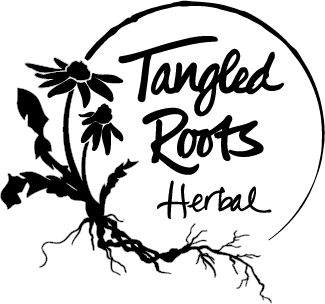Mental health challenges like depression and anxiety are pervasive in today's world. While traditional medication plays a significant role in managing these conditions, nature offers a plethora of herbs that have been used for centuries to promote emotional wellbeing. This article delves into the top five herbs for depression and anxiety, their pros and cons, and how to incorporate them into your daily routine.
St. John's Wort (Hypericum perforatum)
Pros:
- Traditionally used for mild to moderate depression.
- Some studies suggest it can be as effective as standard antidepressants.
- Available in various forms: tea, tincture, capsules.
Cons:
- Not suitable for severe depression.
- Can interact with various medications, including birth control and antidepressants.
- May cause photosensitivity – avoid direct sunlight when using this herb.
St. John's Wort Tea
- Steep 1-2 teaspoons of dried St. John's Wort in a cup of hot water for 10 minutes. Drink once daily.
Passionflower (Passiflora incarnata)
Pros:
- Known for its calming and sedative properties.
- Helpful in reducing anxiety and promoting sleep.
- Can be combined with other calming herbs.
Cons:
- May cause drowsiness; avoid taking it before operating heavy machinery.
- Not suitable for pregnant or breastfeeding women.
Passionflower Tincture
- Fill a jar with dried passionflower. Cover with vodka or brandy that is at LEAST 40% alcohol. Let sit for 4-6 weeks. Strain and store in a dark bottle. Take a few drops as needed.
Ashwagandha (Withania somnifera)
Pros:
- An adaptogen that helps the body manage stress.
- Supports the adrenal glands and promotes balance.
- Can enhance energy and reduce fatigue.
Cons:
- Some may experience gastrointestinal issues.
- Not recommended for pregnant or breastfeeding women.
Daily Incorporation: Add ashwagandha powder to your morning smoothie or take it as a capsule supplement. I actually love adding a teaspoon to my coffee in the morning - it makes it nice and thick and the light, sweet nutty flavor enhances the flavor of my coffee!
Lavender (Lavandula angustifolia)
Pros:
- Well-known for its soothing and calming effects.
- Can improve mood and reduce feelings of restlessness.
- Versatile use in teas, oils, and aromatherapy.
Cons:
- In rare cases, it might cause skin irritation.
- Oral consumption in large amounts can cause headaches and nausea.
Lavender Essential Oil Roller
- Mix 10 drops of lavender essential oil with 10 ml of a carrier oil (like almond or jojoba). Store in a roller bottle and apply to wrists or temples when feeling anxious. I also find putting it behind my ears extremely helpful! I know some folks who love to put it on the soles of their feet before bed for a more restful sleep.
Chamomile (Matricaria recutita)
Pros:
- Renowned for its gentle calming properties.
- Eases anxiety and promotes sleep.
- Widely available as tea or capsules.
Cons:
- Can cause allergic reactions in individuals allergic to plants in the Asteraceae family.
- Overconsumption might lead to nausea.
Daily Incorporation: Enjoy a warm cup of chamomile tea before bedtime to promote relaxation and sleep.
Nature has bestowed us with an abundance of herbs to support our emotional well-being. However, always consult with a healthcare professional before starting any herbal remedy, especially if you're on medications or have underlying health conditions. Embrace the holistic approach and let these herbs guide you to a calmer, more balanced state of mind.
Disclaimer: This article is intended for informational purposes only and not as medical advice. Always consult with a healthcare professional before making any changes to your health regimen.



Comments
Love this! Thanks Karen! 🧡🖤🧡